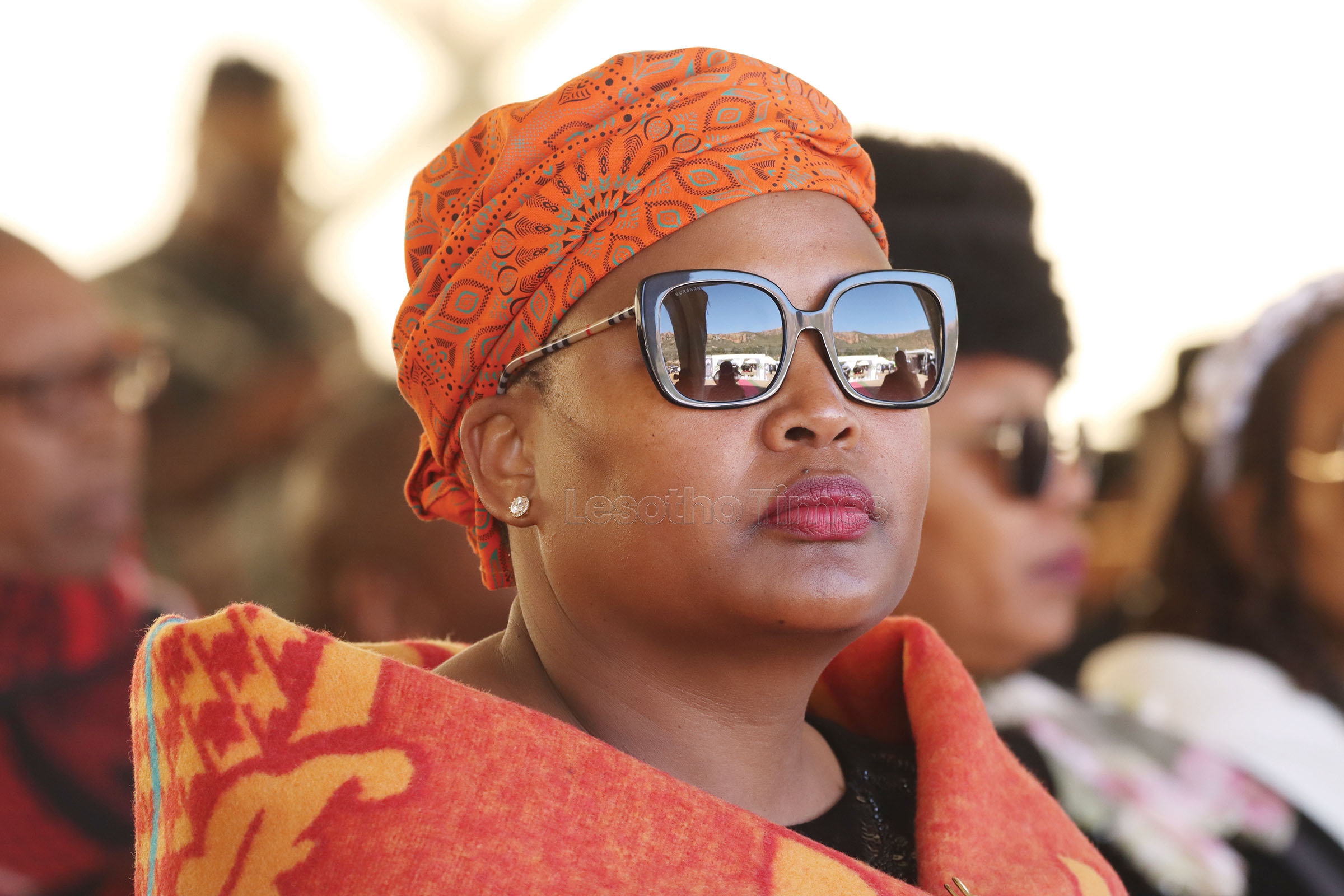…amidst harsh criticism of her from MISA
Mathatisi Sebusi
MINISTER of Information, Communications, Science, Technology, and Innovation, Nthati Moorosi, has refuted claims by the Media Institute of Southern Africa (MISA) Lesotho Chapter that the government is prioritising the Computer Crime and Cyber Security Bill to safeguard its interests of snooping on citizens’ private communications at the expense of the Access to Information Bill of 2021 which would instead enhance democracy.
Ms Moorosi said the government was not seeking to hamper the Access to Information Bill as claimed. Instead it wanted all the laws approved as they served specific important goals.
She spoke to the Lesotho Times in the wake of MISA Lesotho Director, Lekhetho Ntsukunyane’s criticism, during the International Day for Universal Access to Information (IDUAI), of the government’s slow progress in effecting the Access to Information Bill.
Mr Ntsukunyane argued that Basotho and the media were being denied access to information, while the Computer Crime and Cyber Security Bill was being advanced to, in his view, restrict information access and inhibit freedom of expression.
According to Mr Ntsukunyane, the Access to Information Bill, first drafted in 2000, has languished in parliamentary processes for years while the government does all it can to push the cyber security one. He emphasized that, despite its inclusion in the 2021 national reforms process, the information bill has yet to be enacted, while the government seems more focused on the cyber security legislation.
In response, Minister Moorosi clarified that both bills were integral to protecting democracy. She said while the Access to Information Bill empowers citizens to seek information, the Computer Crime and Cyber Security Bill was necessary to protect digital systems from malicious activities.
“The Computer Crime and Cyber Security Bill is not designed to oppress anyone, as MISA suggests. It aims to safeguard rights by addressing cybercrime, including online child exploitation, gender-based violence (GBV), and digital GBV. These threats need to be addressed within the constitutional framework to protect both national and individual security,” said Ms Moorosi.
She assured that the government was committed to advancing both laws to uphold citizens’ rights and ensure national security in the digital age.
Ms Moorosi further said the Cyber Security Bill was not in competition with the Access to Information Bill. Rather, it seeks to establish a legal framework to prevent and respond to cyber incidents, ensuring the protection of critical national infrastructure and sensitive data.
The minister cited several cyberattacks in recent years, including a 2023 incident that disrupted banking services across the country and an attack on the Lesotho Government Data Network that impacted key sectors like the judiciary.
“These cyber incidents demonstrate the urgent need for the Computer Crime and Cyber Security Bill. It is vital for protecting national assets and ensuring public safety, as well as fostering a secure digital environment for economic growth,” she explained.
On the Access to Information Bill, Ms Moorosi confirmed that the process started as early as the 2000s under the Law Reform Commission. However, budgetary constraints delayed its progress. The bill, which falls under the national media reforms, is intended to uphold the constitutional right to freedom of expression and align Lesotho’s legal framework with international standards.
She said as part of the ongoing reforms, the National Reforms Transition Office (NRTO) was overseeing the bill’s development in consultation with stakeholders, including her information ministry. She said the ministry was not in a position to dictate the NRTO’s timeline for this process.
Mr Ntsukunyane has nonetheless remained critical, arguing that the government has been slow to prioritise the public’s right to information. He expressed concern that the Cyber Security Bill had resurfaced in the National Assembly in 2024 with few revisions, despite previous recommendations by parliamentary committees to address concerns from stakeholders, including media and telecommunications sectors.
Mr Ntsukunyane also highlighted that in 2021, the National Assembly’s Portfolio Committee on the Prime Minister’s Ministries and Departments, Governance, Foreign Relations and Information recommended the withdrawal of the original bill to revise its provisions, particularly to ensure the inclusion of security agencies in its formulation.
However, Ms Moorosi reaffirmed the government’s commitment to ensuring both the Access to Information Bill and the Computer Crime and Cyber Security Bill moved forward, each addressing critical aspects of Lesotho’s legal and digital landscapes.


